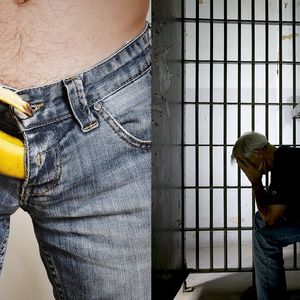CONTACTStaffCAREER OPPORTUNITIESADVERTISE WITH USPRIVACY POLICYPRIVACY PREFERENCESTERMS OF USELEGAL NOTICE
© 2024 Pride Publishing Inc.
All Rights reserved
All Rights reserved
By continuing to use our site, you agree to our Private Policy and Terms of Use.
Nebraska death-row inmate John Lotter is claiming that DNA tests would prove he did not kill Brandon Teena, a transgendered man whose murder inspired the movie Boys Don't Cry. Lotter claims that his friend Marvin Nissen actually murdered Teena and two witnesses in a farmhouse outside Humboldt, Neb., on New Year's, Eve 1993. Lotter's attorney, Jerry Soucie of the Nebraska commission on public advocacy, was to ask the Nebraska supreme court on Thursday to order DNA testing on gloves Nissen wore the night of the murders. An earlier request was rejected by Richardson County district judge Daniel Bryan. Nissen says that he stabbed Teena but that it was Lotter who shot him and the witnesses, 24-year-old Lisa Lambert and 22-year-old Philip DeVine. Lotter claims Nissen did the shooting. Nissen, in a deal with prosecutors, testified against Lotter and was sentenced to life in prison. Lotter received three death sentences. Prosecutors said Teena, who was 21 at the time of his death, was killed because he accused the men of raping him after learning he was a biological woman. The killings outraged gay activists and led to several documentaries and films, including the critically acclaimed 1999 movie Boys Don't Cry, which earned Hilary Swank an Academy Award for best actress for her portrayal of Teena. Prosecutors say Lotter should have asked for DNA testing during his 1995 trial. However, Soucie argues that the type of DNA testing he wants was not available in 1995 and that DNA tests weren't deemed legal evidence in Nebraska until 1997. Soucie also said Lotter had no reason to seek DNA tests in 1995 because he didn't know that Nissen would be testifying against him until the trial started. Soucie made the request under the Nebraska DNA Testing Act, enacted in 2001, which provides state funding for such tests for indigent inmates. Lotter's appeal entails a legal broadside as an attempt to get him off death row. In another pending appeal before the Nebraska high court, Lotter also argues that his trial judge erred by refusing to allow testimony about statements Nissen allegedly made to a cellmate, Jeff Haley. Haley allegedly has said that Nissen confessed to him that he had committed the murders, not Lotter. Among other issues raised in the second appeal is the 2002 ruling by the U.S. Supreme Court in an Arizona case that said the Constitution guarantees a trial by a jury--and that right extends to weighing whether a killing merits a death sentence or life in prison. In other words, the court said that juries, not judges, must decide if aggravating circumstances exist to merit the death penalty. In Nebraska, judges had made that determination since the legislature decided in the 1970s that there was the potential for bias by juries. The legislature changed the law after the ruling in the Arizona case. Lotter also is asking the high court to declare the state's use of the electric chair as cruel and unusual punishment. Nebraska is the only state that uses the electric chair as its sole means of execution.
Want more breaking equality news & trending entertainment stories?
Check out our NEW 24/7 streaming service: the Advocate Channel!
Download the Advocate Channel App for your mobile phone and your favorite streaming device!
From our Sponsors
Most Popular
Here Are Our 2024 Election Predictions. Will They Come True?
November 07 2023 1:46 PM
Meet all 37 of the queer women in this season's WNBA
April 17 2024 11:24 AM
17 Celebs Who Are Out & Proud of Their Trans & Nonbinary Kids
November 30 2023 10:41 AM
Here Are the 15 Most LGBTQ-Friendly Cities in the U.S.
November 01 2023 5:09 PM
Which State Is the Queerest? These Are the States With the Most LGBTQ+ People
December 11 2023 10:00 AM
These 27 Senate Hearing Room Gay Sex Jokes Are Truly Exquisite
December 17 2023 3:33 PM
10 Cheeky and Homoerotic Photos From Bob Mizer's Nude Films
November 18 2023 10:05 PM
42 Flaming Hot Photos From 2024's Australian Firefighters Calendar
November 10 2023 6:08 PM
These Are the 5 States With the Smallest Percentage of LGBTQ+ People
December 13 2023 9:15 AM
Here are the 15 gayest travel destinations in the world: report
March 26 2024 9:23 AM
Watch Now: Advocate Channel
Trending Stories & News
For more news and videos on advocatechannel.com, click here.
Trending Stories & News
For more news and videos on advocatechannel.com, click here.
Latest Stories
Trans man Tee Arnold shot to death in Florida
April 17 2024 4:41 PM
Can scientific research on the causes of homosexuality be used against LGBTQ+ people?
April 17 2024 4:02 PM
George Takei releases kids' book about his childhood in internment camp
April 17 2024 3:18 PM

PLUS
ExclusivesTodrick Hall on surviving the rumors and remembering where he came from
April 17 2024 2:33 PM

Pride
Yahoo FeedHow The Pride Store celebrates National Tea Day: A tale of two brews
April 17 2024 2:14 PM
'Parents' Rights' movements forget families have the right to read LGBTQ+ books
April 17 2024 10:15 AM
This gay man had to flee Ghana after a violent attack. He’s finally been granted asylum
April 17 2024 9:17 AM















































































